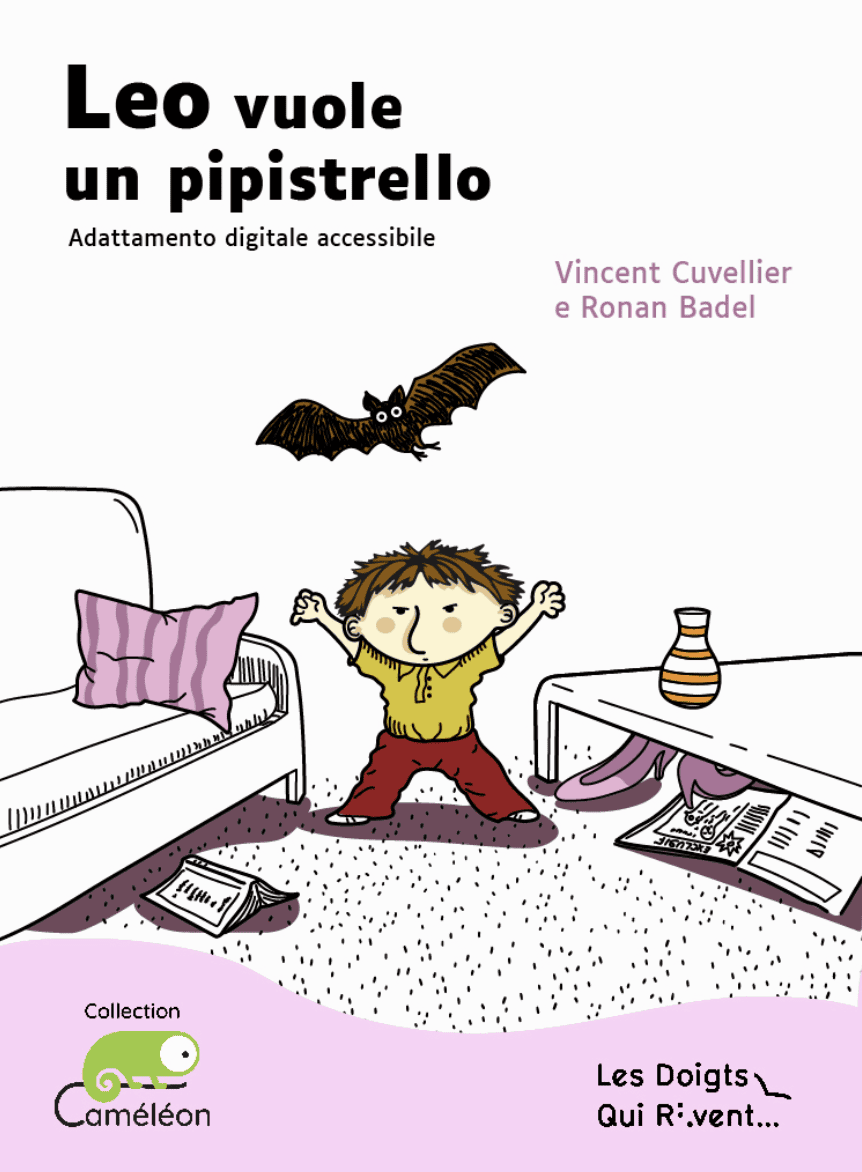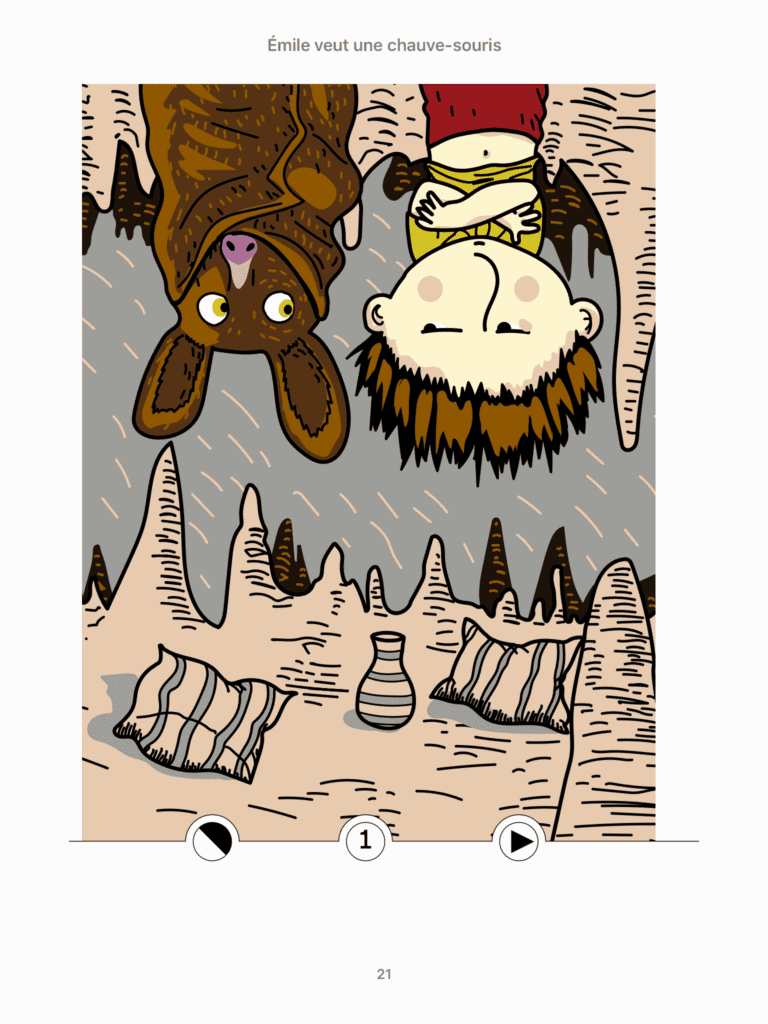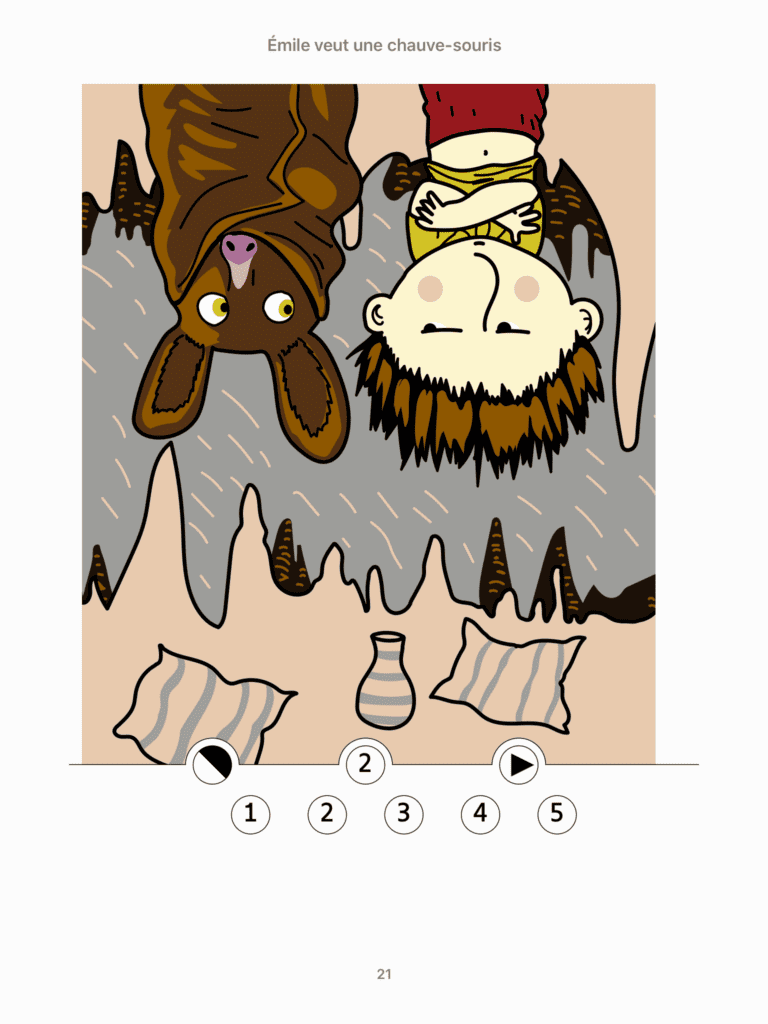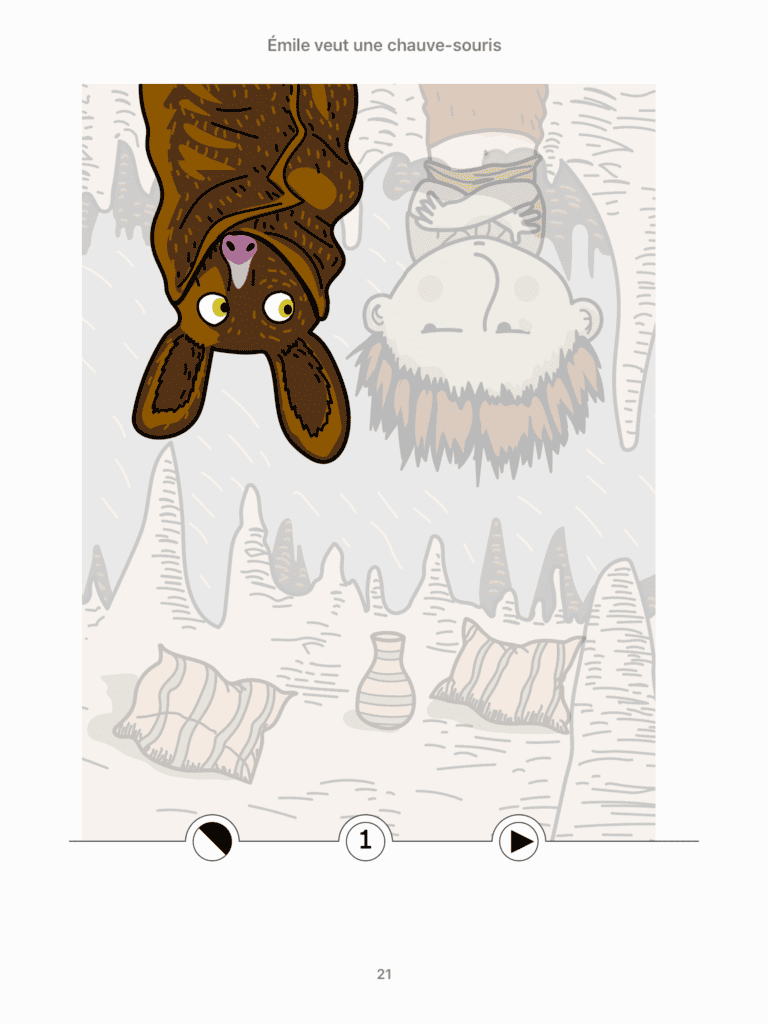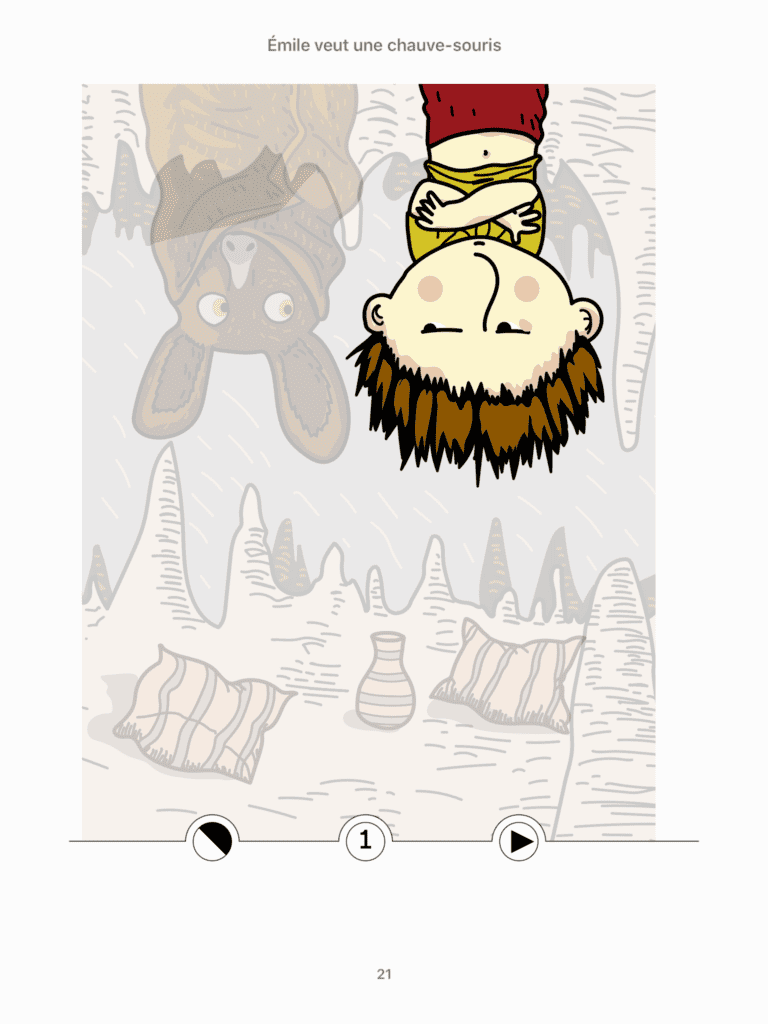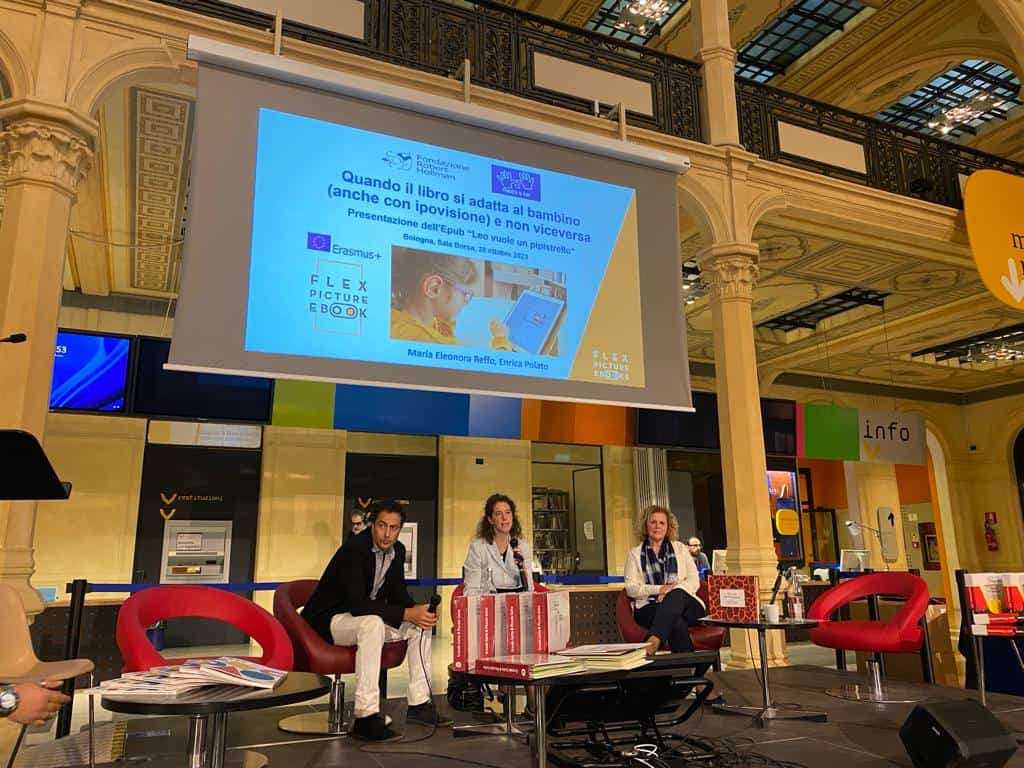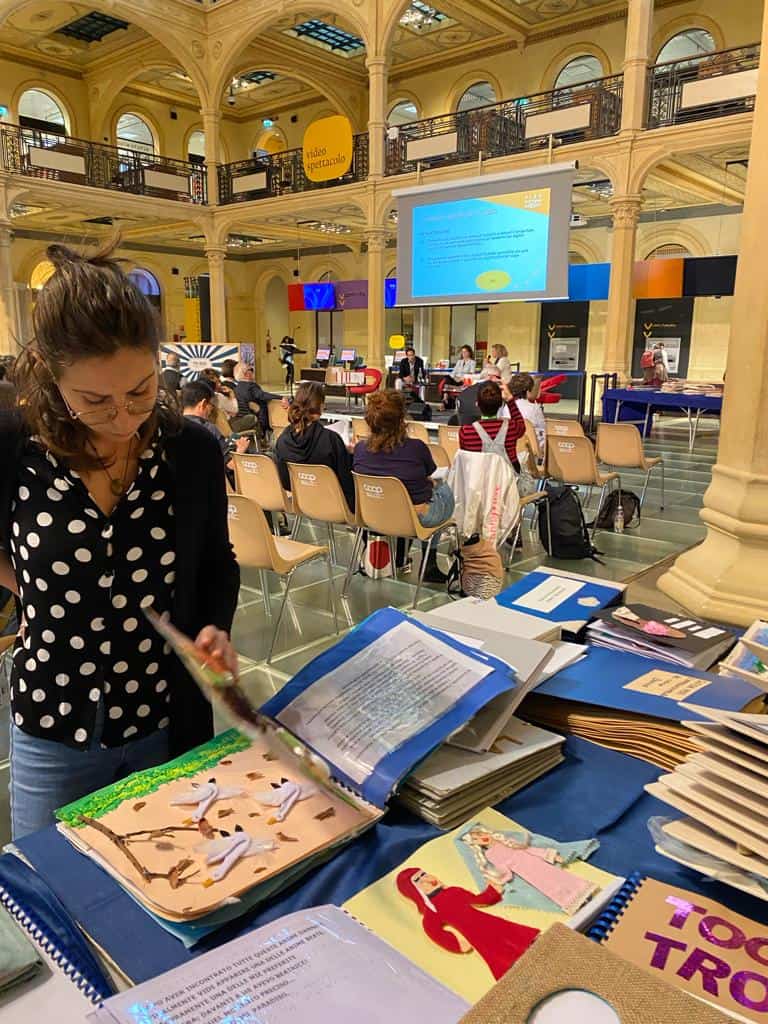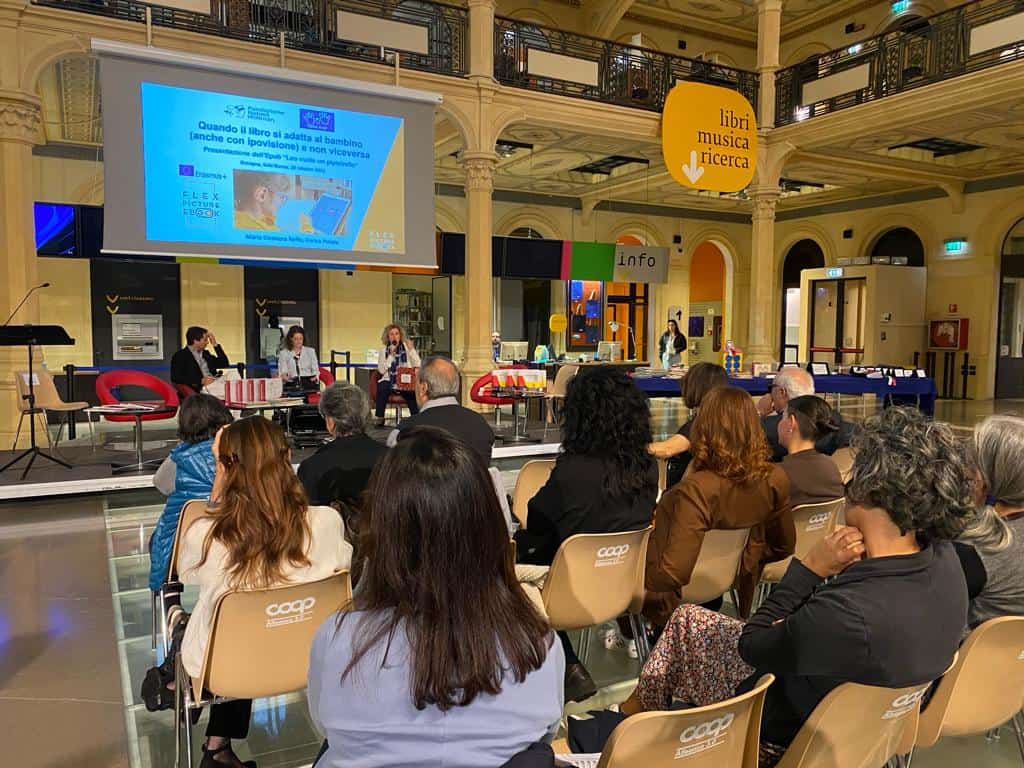It is the technology that makes the difference in this shared trial developed by six European partners, including FRH.
As part of the Erasmus + program, promoted by the European Union to support inclusive and quality actions in the fields of education, training, sports and youth, “Flex Picture Ebook” is the project developed by six partners, including the Robert Hollman Foundation, from four different European countries, with the aim of guaranteeing the right to books and accessibility to reading also for children with disabilities.
In 2021, thanks to winning the 2019 EDU-UP call for proposals from the French Ministry of Education, the publishing house Les Doigts Qui Rêvent” (The Fingers That Dream) of Talant in Burgundy, which has been working for 30 years to promote access to books and reading for hypo and visually impaired children and young people, designed the epub prototype“Leo wants a bat, an adaptation of the paper book Émile veut une chauve-souris, written by Vincent Cuvellier, illustrated by Ronan Badel and published by Gallimard publishing house.
The epub (short for “electronic publication,” i.e., digitally accessible picture book), usable on some iPad models with the “books” app and on PCs with the “Thorium” reader, allows each child to choose:
- How to access the text: through the audiobook or by reading the text independently (adapting font, font size, text and background color…)
- how to access images: in black and white or color, choosing one of 5 different levels of simplification, isolating an element from the rest of the image, zooming in to enlarge a detail
- Whether to activate sound animations (e.g., echo of a cave) and visual animations (the flight of a bat, a mouse shaking, etc.) on some pages that are more difficult to understand
This prototype needed a much-needed testing and fine-tuning phase, which is currently being carried out precisely because of the Erasmus + Project.
The six social partners from four European countries (Italy, France, Austria, and Lithuania) have been experimenting with the new electronic publication since November 2022 under the guidance of French publisher Les Doigts Qui Rêvent.
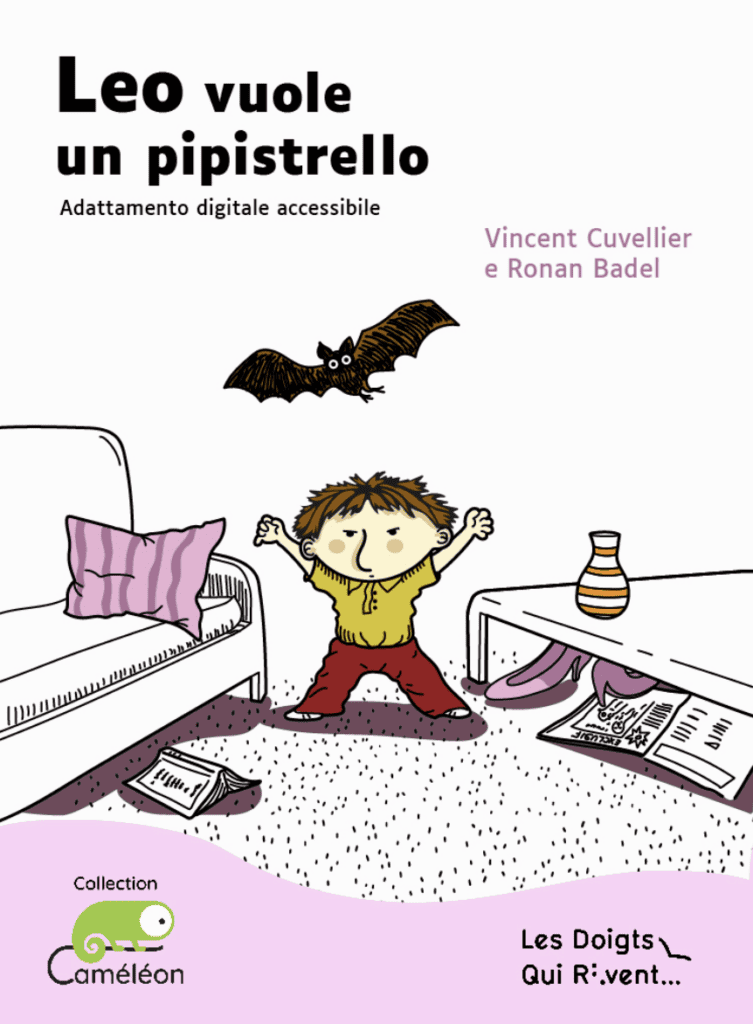
For Italy, in addition to FRH with its two Centers in Padua and Cannero, the social cooperative AbilNova of Trento, which is Trentino’s territorial pole for sensory disability, is involved; for France, in addition to the publisher, there are theInstitute for Young Blind People of Toulouse and the Ludosens Association of Bégles engaged in the field of neurodiversity; for Austria, theJohannes Kepler University of Linz; and for Lithuania, the Lasuc Center for the Education of Blind and Visually Impaired People.
To develop its objectives, the project starts from three assumptions: the first is that the shortage of accessible picture books penalizes children with disabilities who are very often discouraged in reading or its learning by a cognitive overload related only to the written word. The second consideration relates to the need to integrate those digital reading tools that allow only text display parameters to be changed, but not those related to images.
Finally, it was noted how necessary it is to spread more awareness in the school world about the impact that deficits can have on the actual ability of pupils with deficits to read and comprehend a gradebook.
“In the first phase of experimentation, which lasted from April to June 2023,” explains Enrica Polato, project coordinator for the Robert Hollman Foundation, “the epub was made available to teachers, educators and rehabilitators so that it could be offered to children, with and without disabilities, individually, in small groups and in the classroom. Subsequently, through two questionnaires, we collected children’s and referring adults’ opinions about the tool, with the aim of elaborating concrete and precise pedagogical/didactic indications, such as “Before reading, adjust the brightness of the environment, that of the screen, the color and the size of the pointer” or “if the child has never experienced a bat or a cave, propose that he touch a reproduction of it, such as a puppet or a material construction.””
These indications have been incorporated into the “Pedagogical-Didactic Scenarios,” “which are a collection of suggestions and recommendations,” Dr. Polato continues, “that we hope will be useful to caregivers engaged in the second phase of the trial (which will be carried out between January and March 2024) and, subsequently, to all those who will offer the epub to children.
It is important to point out that the epub Leo wants a bat does not represent an isolated experience, but a format that will be disseminated free of charge to all publishing houses and producers of educational and literary content who request it. They will be given the necessary know-how, in terms of technology and methodology, to adapt the illustrations and to produce digital illustrated books accessible in the EPUB3 standard format.
Check out the project website: https://flexpictureebook.eu/it/
